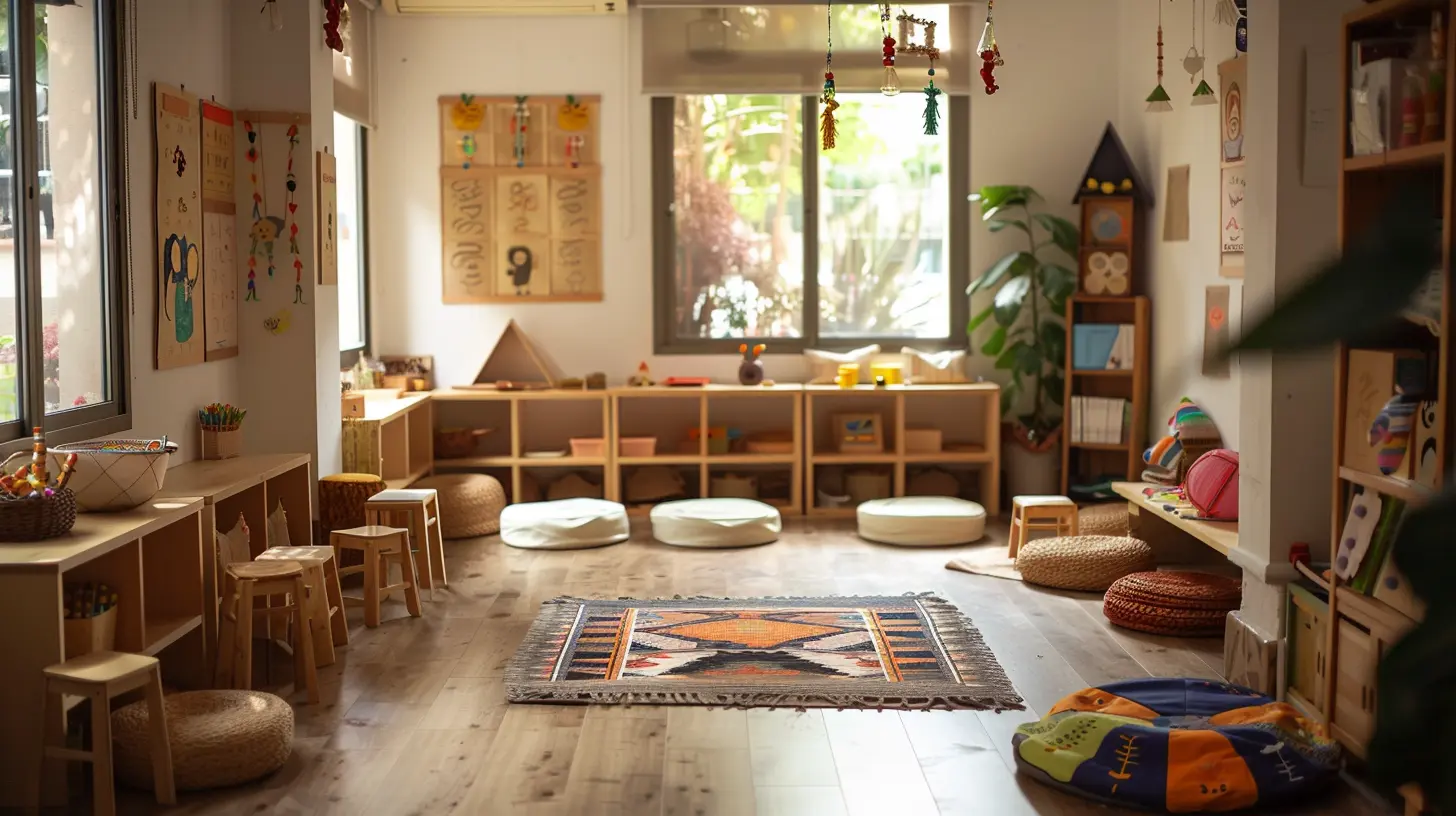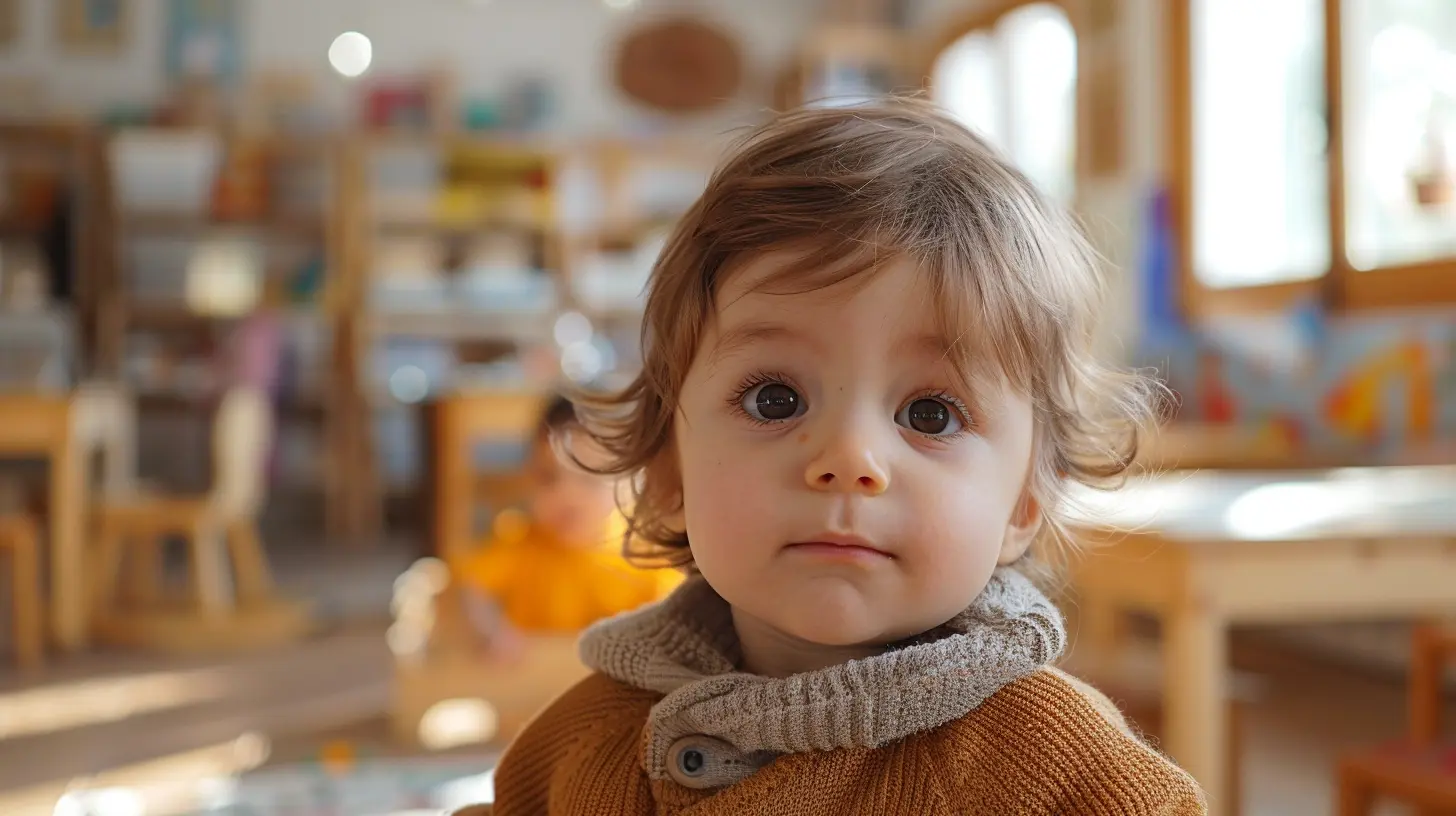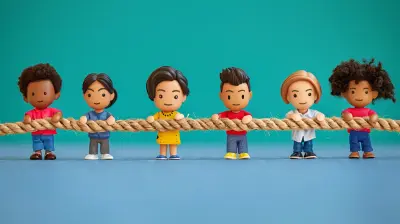14 September 2025
If you’ve ever watched a toddler switch between languages like a tiny, adorable translator, you know firsthand how incredible multilingualism is. But here’s the million-dollar question: How do you nurture those budding linguistic skills without overwhelming your little polyglot?
Enter Montessori education—a learning approach that fits multilingual children like a glove. If you’re considering this teaching method for your child (or just curious about how it works), let’s take a deep dive into why Montessori and multilingualism make the ultimate dream team.

What Makes Montessori Education Unique?
Before we get into the multilingual magic, let's set the stage. Montessori education, developed by Dr. Maria Montessori, is all about hands-on learning, self-directed activities, and fostering independence. Instead of rigid lesson plans, kids get to explore subjects at their own pace, following what naturally sparks their curiosity.Now, imagine combining that with the cognitive flexibility of a child who speaks more than one language. It’s like giving a race car an extra turbo boost—things are about to get really interesting!

The Perks of Montessori for Multilingual Kiddos
1. Language Flourishes in an Immersive Environment
Montessori classrooms are designed as language-rich spaces. Children are constantly exposed to spoken and written words through storytelling, conversations, and interactive learning materials. For multilingual children, this means they don’t just passively absorb languages—they actively engage with them in meaningful ways.Think of it like a garden where different languages are seeds. Instead of just hoping they grow, Montessori methods provide the right combination of sunlight (engaging lessons), water (social interaction), and nutrient-rich soil (a supportive environment). The result? A flourishing bilingual (or even trilingual) child!
2. Self-Paced Learning Reduces Language Pressure
Let’s be honest: Learning multiple languages can sometimes be overwhelming for kids, especially if they feel pressured to “keep up.” Traditional education systems follow a one-size-fits-all curriculum, but Montessori allows children to learn at their own pace.That means if your child is still figuring out the nuances of verb conjugation in French while effortlessly reading in Spanish, there’s no rush. The flexible structure ensures that language development happens naturally and without unnecessary stress.
3. Multisensory Learning Enhances Language Retention
Montessori education isn’t just about sitting at a desk and memorizing words. Nope, that would be way too boring! Instead, it incorporates hands-on activities that engage multiple senses—touch, sight, hearing, and even movement—to reinforce learning.For a multilingual child, this approach is a game-changer. Imagine learning English vocabulary by tracing sandpaper letters, practicing Mandarin through storytelling, or picking up Spanish via interactive puzzles. The more senses involved, the stronger the language connections in their brain.
4. Encourages Independence and Confidence in Communication
Montessori classrooms promote self-guided learning, giving kids the freedom to explore subjects they’re truly interested in. This independence extends to language use as well.Instead of being corrected constantly, multilingual children in Montessori settings are encouraged to express themselves freely—even if they mix languages (aka code-switching). And guess what? That’s actually a great thing! Code-switching is a sign of high cognitive ability, not confusion. By fostering a safe space for communication, Montessori helps kids build confidence in their language skills.
5. Stronger Cognitive Skills and Problem-Solving Abilities
It’s no secret that multilingual kids have some pretty impressive brainpower. Studies have shown that speaking multiple languages enhances cognitive flexibility, problem-solving, and even memory. Now, combine that with the Montessori method’s emphasis on critical thinking and hands-on problem-solving, and you’ve got a powerhouse of intellectual development.It’s like giving your child a mental Swiss Army knife—they’ll be better equipped to tackle challenges, solve puzzles, and navigate the world with an adaptable mindset.
6. A Culturally Inclusive Learning Environment
Montessori classrooms naturally embrace diversity, making them a perfect fit for multilingual children. Cultural studies, geography lessons, and even the materials used in class often highlight different traditions and languages from around the world.For a child who speaks multiple languages (or comes from a bilingual household), this kind of inclusivity is a breath of fresh air. They get to see their languages and cultural background valued and celebrated, reinforcing their sense of identity.
7. Stronger Social and Emotional Development
Language is more than just words—it’s a bridge between people. In Montessori settings, children engage in mixed-age classrooms where communication is key. They learn to collaborate, negotiate, and express emotions effectively.For multilingual kids, this means they aren’t just learning languages in isolation. They’re using them in real-world interactions, strengthening both their social and emotional intelligence.

Addressing Common Concerns About Montessori and Multilingualism
“Won’t My Child Get Confused Learning Multiple Languages at Once?”
Nope! Multilingual kids naturally separate languages over time. Montessori’s method of supporting language exposure without forcing it makes the transition even smoother. Instead of overwhelming them, it nurtures their natural ability to switch between languages effortlessly.“What if My Child Falls Behind in One Language?”
Montessori’s individualized learning plans ensure that every child progresses at their own pace. If your little one is stronger in one language than another, the curriculum adjusts accordingly—offering gentle encouragement rather than rigid benchmarks.“Will Montessori Teach My Child to Read and Write in Multiple Languages?”
This depends on the school, but many Montessori programs support bilingual learning environments, especially in culturally diverse areas. Even if the school focuses on one language, the foundational literacy skills (phonics, reading comprehension, writing) easily transfer across languages.
Final Thoughts
Montessori education and multilingualism are a match made in heaven. By fostering independence, hands-on learning, and linguistic immersion, Montessori allows multilingual children to thrive without unnecessary pressure.So, if you’re raising a little polyglot and wondering how to support their language journey, Montessori might just be the golden ticket. After all, who wouldn’t want an education system that celebrates curiosity, creativity, and communication—all while keeping things stress-free?









Daisy Tucker
Great insights! Montessori's approach truly nurtures multilingualism and fosters a love for learning.
January 16, 2026 at 3:56 AM